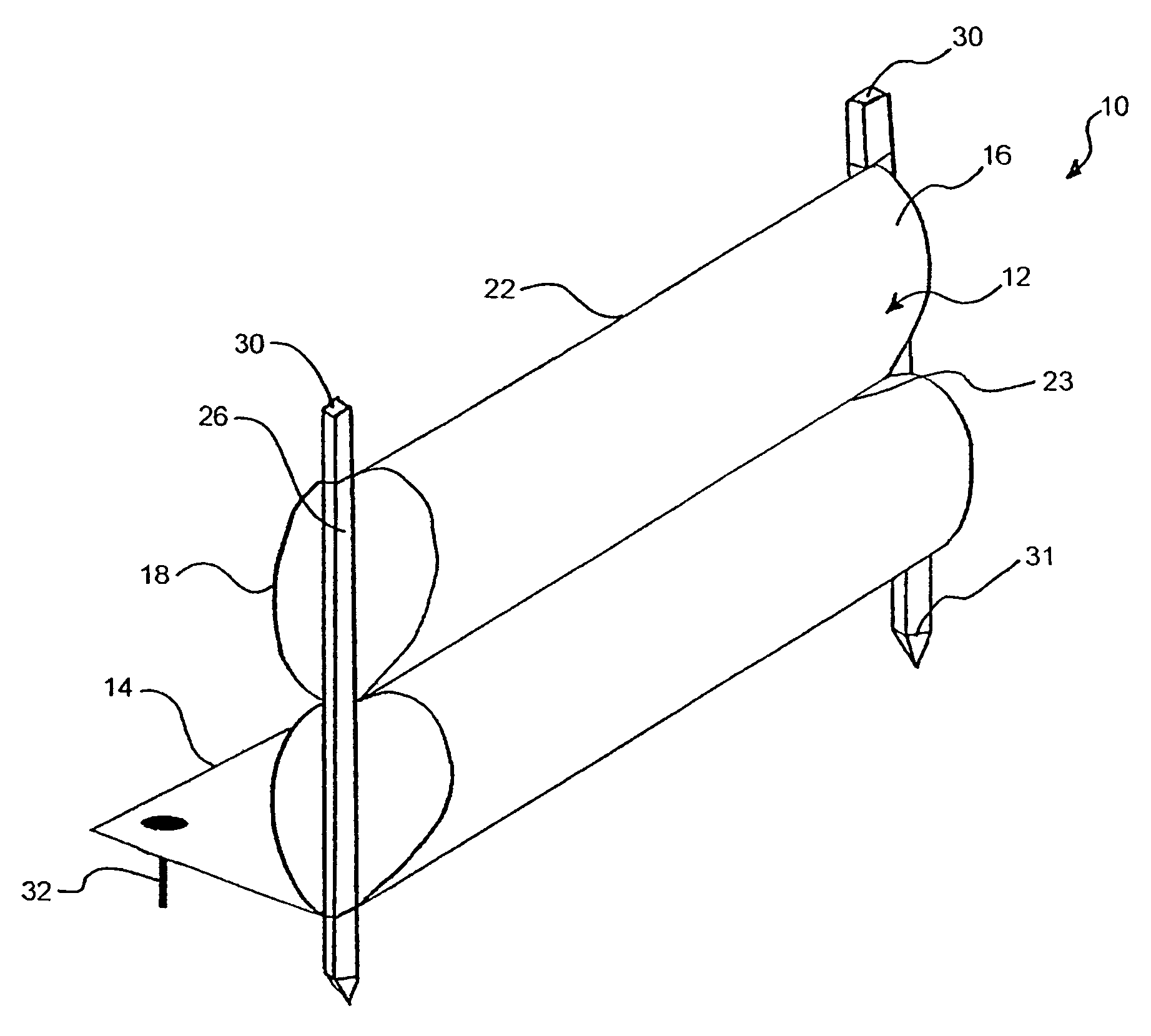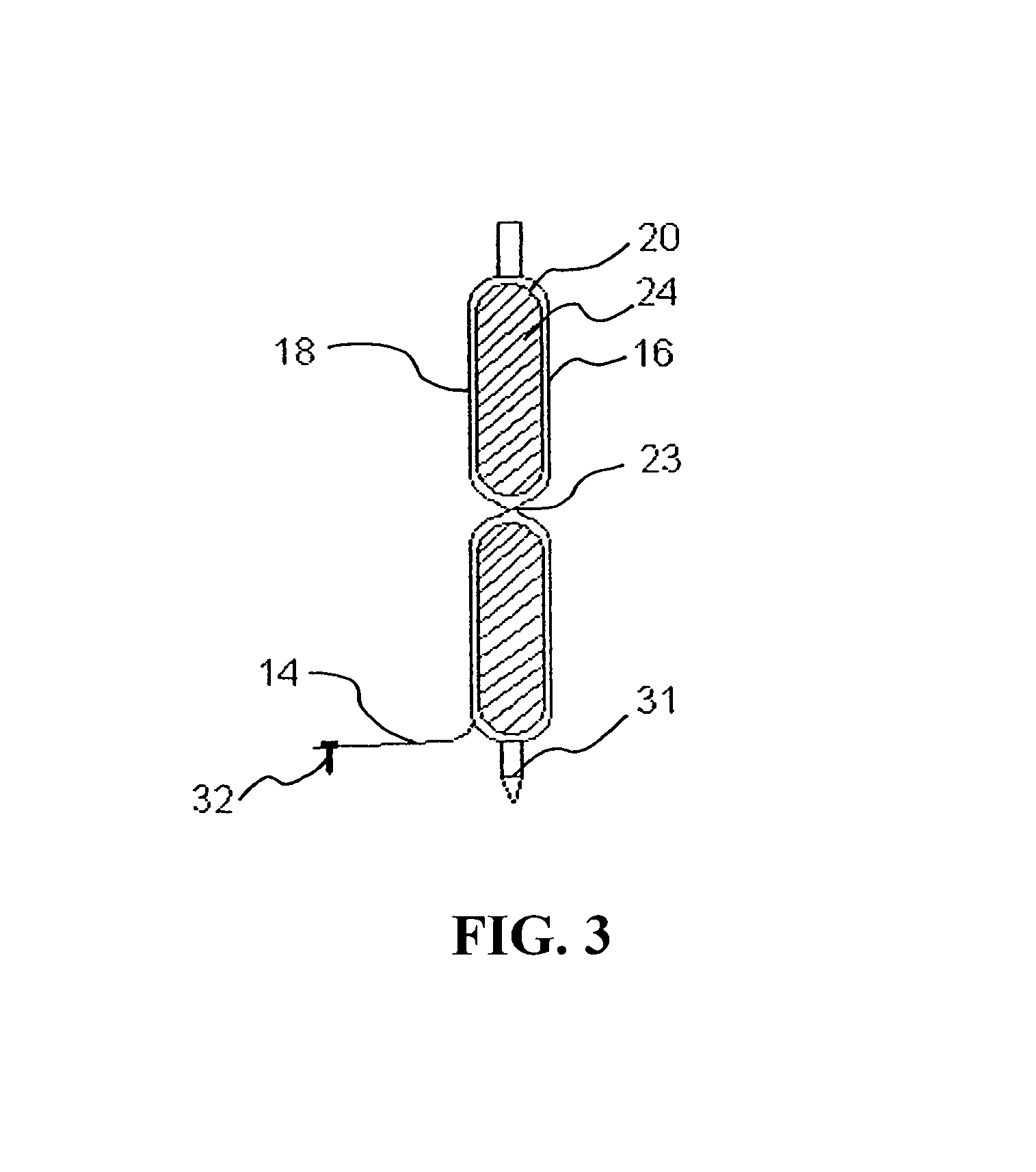Sediment barrier
a technology of sediment barrier and sand barrier, which is applied in the direction of excavation, pier, groynes, etc., can solve the problems of difficult installation and removal, substantial environmental damage at the construction site, and easy compromise of both, so as to prevent soil erosion and maintain integrity over time, and resist wind, water and other forms of weather related damage. , the effect of easy movement of the apparatus
- Summary
- Abstract
- Description
- Claims
- Application Information
AI Technical Summary
Benefits of technology
Problems solved by technology
Method used
Image
Examples
Embodiment Construction
[0024]FIGS. 1-3 illustrate a sediment barrier 10, according to one embodiment of this invention. The sediment barrier 10 includes or comprises a body or a dam portion 12 and a retainer or a tail portion 14. In some embodiments of this invention, dam portion 12 includes or comprises a front cover 16 and a back cover 18. The front cover 16 and / or the back cover 18 can be constructed from one or more higher-flow mono-filament geotextile fabrics, such as known to those skilled in the art of geotextile fabrics, which are generally light-weight, durable and resistant to growth of weeds and / or other contaminants. As used in this specification and in the claims, the term “geotextiles” refers to permeable fabrics which, when used in association with soil, have an ability to separate, filter, reinforce, protect and / or drain. The front cover 16 and / or the back cover 18 can be formed from rectangular shaped sheets, such as shown in FIG. 2, or from any other suitable shape. The front cover 16 an...
PUM
 Login to View More
Login to View More Abstract
Description
Claims
Application Information
 Login to View More
Login to View More - R&D
- Intellectual Property
- Life Sciences
- Materials
- Tech Scout
- Unparalleled Data Quality
- Higher Quality Content
- 60% Fewer Hallucinations
Browse by: Latest US Patents, China's latest patents, Technical Efficacy Thesaurus, Application Domain, Technology Topic, Popular Technical Reports.
© 2025 PatSnap. All rights reserved.Legal|Privacy policy|Modern Slavery Act Transparency Statement|Sitemap|About US| Contact US: help@patsnap.com



